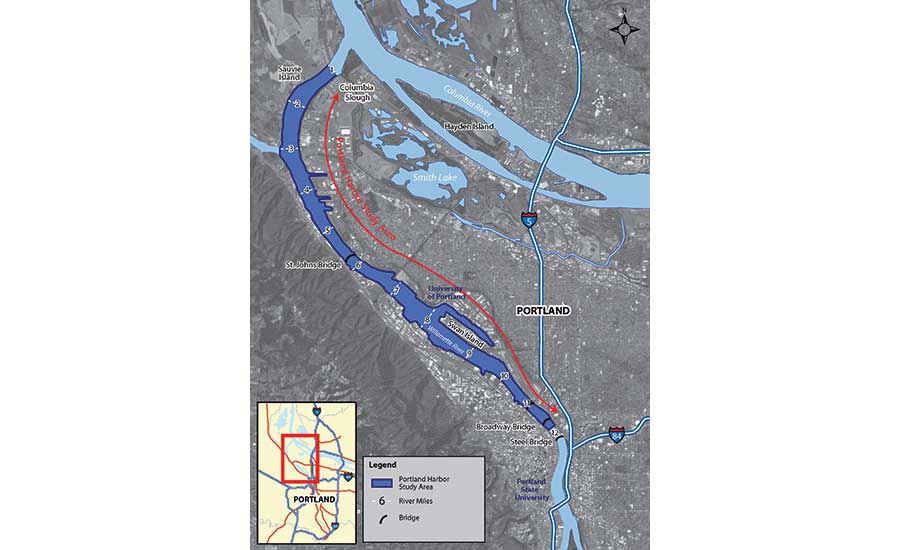Although Environmental Protection Agency Administrator Scott Pruitt has vowed to speed cleanup at the nation’s more than 1,300 Superfund sites, documents indicate the agency may slow down an estimated $1-billion cleanup at the Portland, Ore., harbor. EPA’s move has alarmed local officials and the state’s congressional delegation.
An EPA proposal that hasn’t been made public essentially rolls back a January 2017 EPA record of decision (ROD) to clean up a 10-mile contaminated section of the Willamette River, say Oregon officials who have seen the draft.
The harbor was added to the National Priorities List in 2000 because of water and sediment contaminated with hazardous substances, such as pesticides, heavy metals and polychlorinated biphenyls.
The ROD calls for dredging and capping 394 acres of contaminated sediments and 23,000 linear ft of riverbank. The $1.05-billion project is expected to take 13 years, according to the document.
After seeing a draft administrative consent order between the EPA and a pre-remedial design group that represents some of the 160 responsible parties, the Oregon Dept. of Environmental Quality (DEQ) says the order reopens and reanalyzes decisions already made through the lengthy and intensive ROD process. The DEQ questioned whether the new EPA proposal is an attempt to stop the cleanup altogether.
Kevin Parrett, DEQ Northwest Region Cleanup Program manager, says his agency also obtained a copy of the accompanying technical work plan and “immediately became very concerned as it seems to be more focused on collecting data in certain areas in a certain way … to make the case that the EPA selected the wrong remedies.” Parrett adds, “The DEQ has no interest in relitigating the record of decision. We took 17 years to get here.”
The documents contain language that Oregon Gov. Kate Brown (D) has said “undermines the progress we’ve made” on the cleanup. Oregon’s Capitol Hill delegation weighed in, too, with an Oct. 16 letter asking the EPA to move forward on the previously agreed-upon cleanup plan.
In a letter, the DEQ told EPA the draft consent order eliminates the proper communication channels with all interested parties; puts site modeling at odds with the ROD; aims to reevaluate the ROD and cause further delay; creates new data collection standards that leave major data gaps from the site; and eliminates funding for the DEQ’s regulatory oversight.
The EPA has said it won’t move forward on the order until at least the end of October so as to hear more from local officials. “Then the question is, what is the EPA going to do?” says Parrett. “Are they going to take our comments seriously?”
The EPA did not respond to an ENR request for comments about the Portland harbor cleanup.





Post a comment to this article
Report Abusive Comment